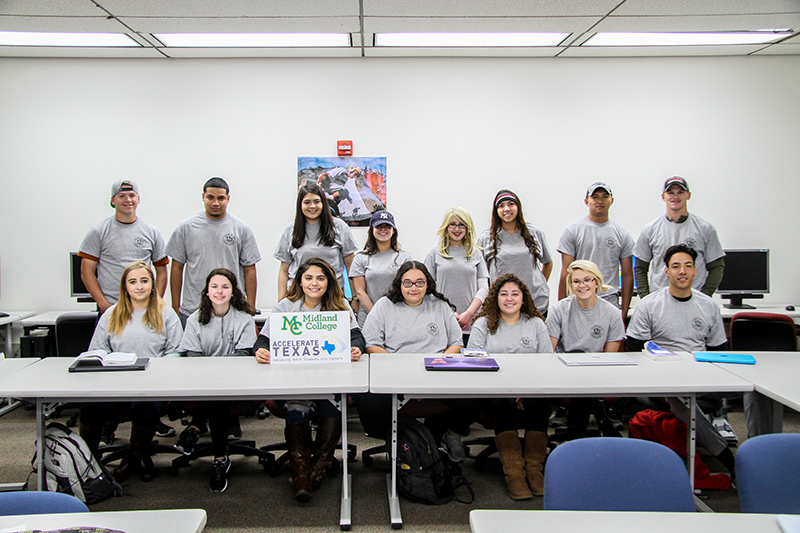 According to Georgetown University’s Center on Education and the Workforce, at least
60 percent of Texas jobs will require a career certificate or college degree by 2020.
That’s why over 21 community colleges across Texas are participating in Accelerate TEXAS, funded by the Texas Higher Education Coordinating Board, to help students advance
their careers and strengthen the state’s entire workforce. Accelerate TEXAS has already enabled 2,000 Adult Basic Education students improve their skills and
career opportunities.
This year, Midland College initiated an accelerated curriculum plan incorporating
Integrated Reading & Writing (IRWD 0381) with Composition I (ENGL 1301). The program
allows for those students who are not ready for college-level English to take a developmental
course during the first 8 weeks of the semester. They then take freshman-level English
(ENGL 1301) during the second 8 weeks. This allows students who successfully complete
the developmental class in an accelerated format to immediately enroll in college-credit
English, thereby combining both courses in one semester, rather than two semesters
as has been the case in previous years.
“We are seeing great results with the accelerated program,” said Lynda Webb, MC dean
of Adult & Developmental Education. “Students are focused on success, and many of
them say that they really like the shortened time frame for each course, even though
they are in class more hours per week.”
Dianne Chambers is an associate professor of Developmental Reading/Writing who teaches
one of the accelerated classes. She said that most of the students in the class are
first-time college students. In her 8:00 a.m. class, the students are typical community
college students. The majority are full-time students (taking 12 hours or more) and
have full- or part-time jobs.
“Many community college students are not prepared to enter college and succeed,” explained
Webb. “The Accelerate TEXAS program is allowing community colleges to find ways to integrate basic skills with
college-level courses so that students can earn credentials that prepare them for
high-demand careers with competitive salaries.”
|
